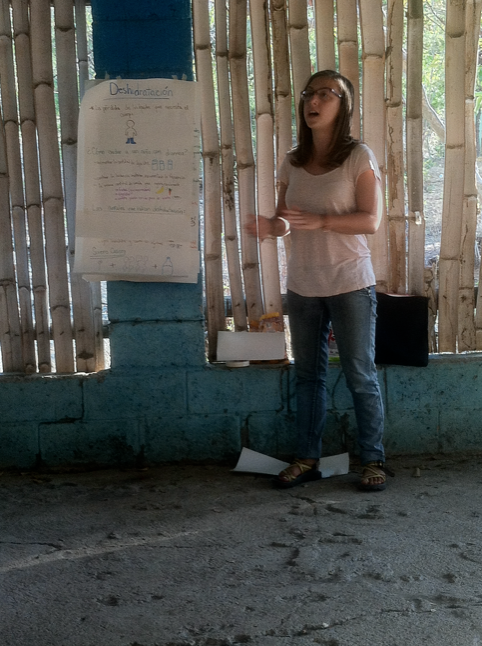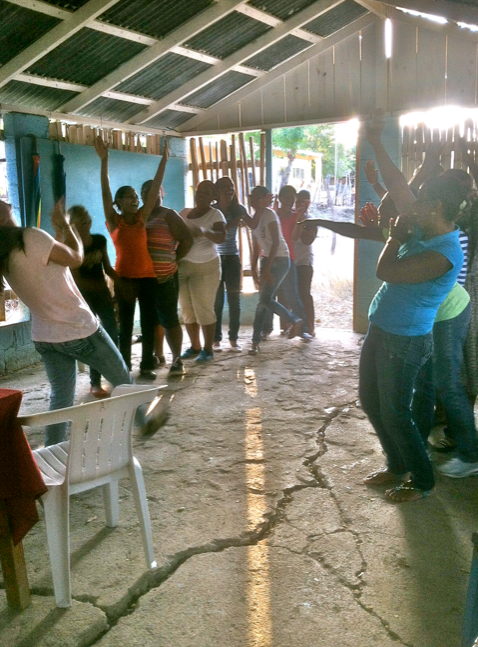My Women Health Promoters- “Hogares Saludables” (Healthy Homes)
- cagormley
- Mar 27, 2015
- 5 min read








This past month I have been able to start my two women’s groups under the Peace Corp and Dominican partnered organization, Hogares Saludables, in my community and the community up the hill. In this blog post, I’ll explain what I have been doing with my two women’s groups.
These women’s groups are aimed to train a group of women leaders in a community about themes such as nutrition, HIV/AIDS prevention, infectious disease prevention, sanitation practices, and other healthy practices for themselves and their families. The goal of this group is to give hourly talks weekly to these women in creative and fun ways in the hopes to graduate these women from a course with strong health knowledge. These women will then go into the community and teach their neighbors and friends about what they have learned in this course and so that eventually the community as a whole has a strong understand on how to prevent, identify, and treat illness and health problems in the community. This aim to train health promoter is in hopes that this project will be self-sustaining once I leave country, perhaps having other women in the community start their own “Hogares Saludables” groups as well.
I have given five talks as of now with these women. These talks consist of papers I have prepared to present to these women, activities to test their knowledge, activities to keep them from being bored, and interactive questions and discussion about health topics. The talks I have covered so far include what is the organization “Hogares Saludables”, water and house sanitation, family nutrition, the importance of breastfeeding, and chronic illnesses.
When first beginning my groups I was extremely nervous. My Spanish has improved tremendously since I have arrived in the Dominican Republic, but is still shaky at times, especially with health vocabulary I do not use daily. Every talk I have given my nerves have gotten better, but still I have to make sure I am taking deep breaths before my talks just to fully calm my nerves. It has definitely helped to realize that these women want to learn and they want to have fun. Throwing in some “dynamicas” or ice breakers every half an hour seems to not only get the drowsiness out of their eyes but also gets rid of my nerves and gives us all a good laugh. As I have realized more and more, making a fool of myself is just a part of life and I have to have a constant good humor about my silly Spanish mistakes or total loss of words at times. Almost any mix-up can be alleviated by a good smile and an admission that I am still learning and to bear with me. Despite my nerves and some road bumps throughout my talks, this regularity of weekly meetings has been a Godsend to my weekly activities. I love feeling like I can now get into the swing of things. With every disappointment or setback in my groups seem to come two more successes. I have had so many rewarding times resulting from these talks. At times I really feel like a could be making a difference.
For example, two months ago I discovered that a young girl in my community had died Christmas Eve from dehydration due to diarrhea. With such a tragedy in my community many questions came to my mind: Why didn’t the mother take this child to the hospital? Did she recognize dehydration in her child or the importance of rehydration? Was there anything that could have prevented this illness? Many people in my community do not wash their hand regularly or with running water. As a Peace Corps volunteer in the health sector, part of my job to help educate people in the community about healthy lifestyle practices through talks and formation of women and youth groups. In my first talk presented to my two newly formed women’s groups I talked about the importance of water purification and sanitation methods including the correct way to wash your hands. I taught these women how to make a “llave casero”. To make one of these “llave caseros” or a spout you take a one liter bottle, remove the bottom, hang the bottle upside down with a string, filled with water, and open the cap of the bottle slightly, resulting in a makeshift spout of running water. This contraption is made to provide running water instead of standing water, to wash one’s hands. Washing hands with running water can be difficult in my community because of a lack of water security and the necessity to carry water from the well daily. I encouraged my women to make one of these very cheap “llave caseros” and put it outside of their kitchen or their latrine to use when leaving the bathroom, before cooking, and before eating. Even though this “spout” is free and easy to make I was doubtful if my women would follow my advice and make one. The day after my talk, while I was taking a walk around my community, I stopped into a house that I had not visited before. The woman that welcomed me into her two-room house, with no floor and very little enmities, warmly greeted me and I recognized her from my women’s group. She proudly announced to me, a smile stretching across her face, that she had made a llave casero and was using it regularly. I was so proud; I jumped up and hugged her. I was so excited someone had taken the initiative to follow my advice from my talk. Behavior change can be slow and often extremely difficult, but this small step made me feel very hopeful for future changes in the healthily behavior practices of my community members. The next week, I asked my women’s group how many women had made “llave caseros” and were using them in their homes. Six women raised their hands, only less than half of the women in my group, but still definitely progress. I told my group that next week I would ask them again who had made “llave caseros”. We will see if people adopt and continue with these healthy practices that I am teaching in my talks. Hopefully healthy habits, even as simple as washing your hands, could prevent another incident of a child dying from dehydration due to diarrhea within my community. Through education and sparks of inspiration, my hope is, in some way, to prevent the death of one future young girl.
Today I am going to give a talk on chronic illnesses such as diabetes, obesity, hypertension, and anemia. 40% of adults in the Dominican Republic have hypertension and many also have diabetes. These topics though often very difficult to result in behavior change, as culturally their diet is so heavy in carbs, salt, and sugar, will hopefully give them a better understanding of ways to counteract these diseases, monitor and treat, and prevent them for the future generations. Although a lot of the topics that I teach to these women’s groups are difficult to ensure that they inspire behavior change I hope that somehow, even if slowly, I am making a difference in the health of these women’s lives and their community. I will continue with these two groups giving talks until around June and then they will graduate and will continue to promote health to the community.















Comentários